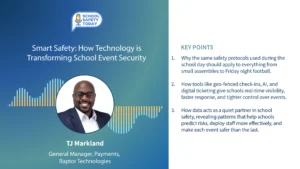Achieving Hands-On Learning in Distance-Learning Environments
If there’s anyone qualified to speak to the strategies that work best for students in remote and virtual learning scenarios, it’s Micah Copeland, Elementary Principal at North Carolina Cyber Academy.
The Academy’s mission is to “empower children with knowledge, skills and character traits to be successful in their education through an engaging, personalized learning experience in a full-time virtual school.”
That means, when the COVID-19 pandemic forced the entire world to go remote, the NCCA was better prepared than most educational institutions. Now, even with reopening in full swing, Copeland offered insights into how educators can navigate the continuation of remote and hybrid learning environments and continue to deliver impactful, personalized experiences through these digital channels.
The biggest cornerstone to any successful virtual education strategy, Copeland said, is a simple one – you have to work to forge the same kinds of genuine relationships you would in a face-to-face setting.
“We really work to try to get to know our kids,” Copeland said. “That is important for us. Just like in the classroom, relationships are critical.”
The Academy has whole-group sessions, as well as targeted, one-on-one sessions that educators use to provide additional support. That combination of synchronous and asynchronous learning brings the best of both worlds to the school’s students.
To hear the entirety of Copeland’s insights into navigating the current educational landscape, listen to the entire conversation.
Follow us on social media for the latest updates in B2B!
Twitter – @MarketScale
Facebook – facebook.com/marketscale
LinkedIn – linkedin.com/company/marketscale









